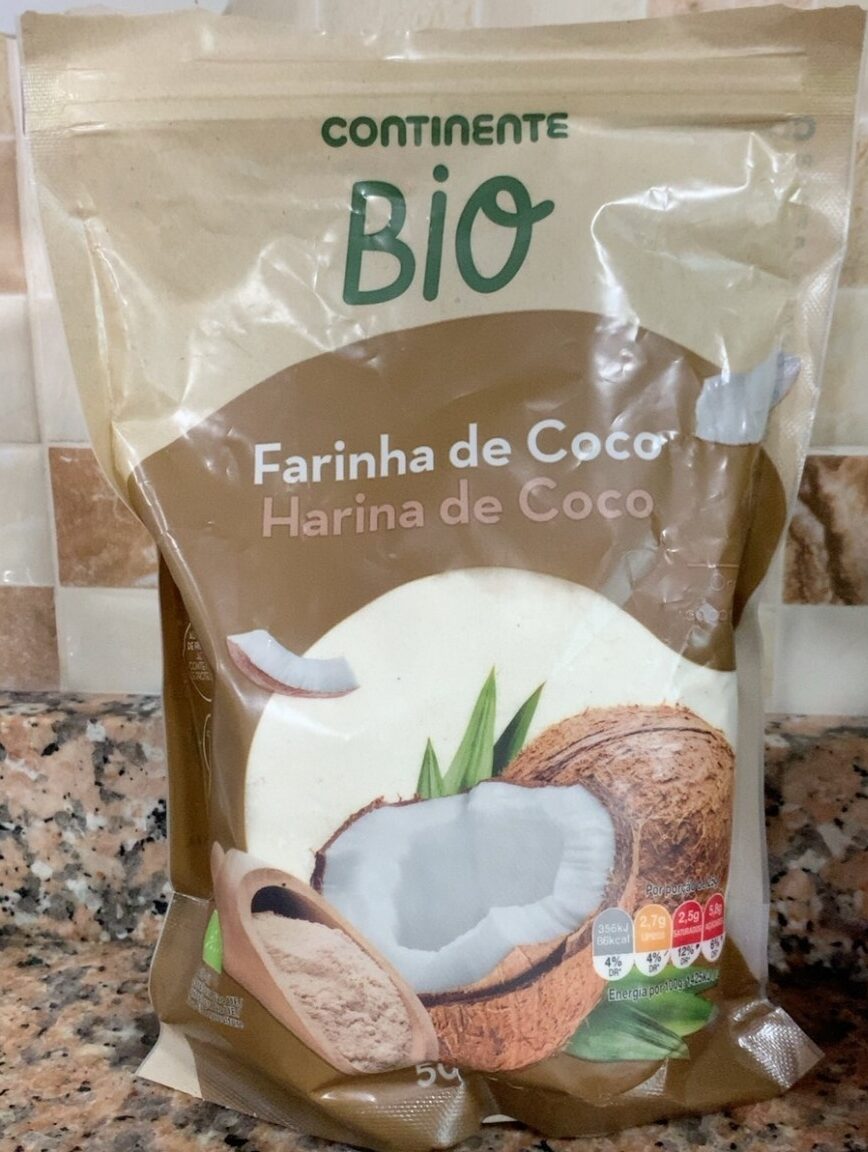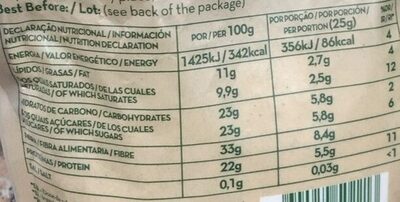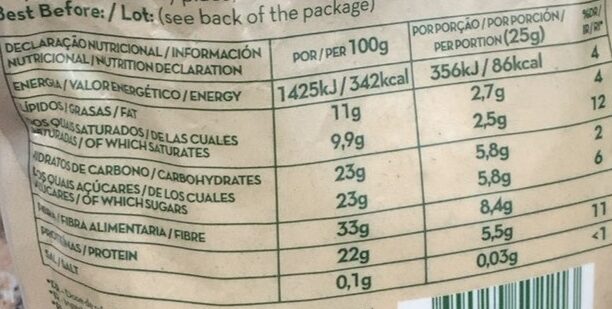Farinha de Coco 500g - Continente - 500 g
This product page is not complete. You can help to complete it by editing it and adding more data from the photos we have, or by taking more photos using the app for Android or iPhone/iPad. Thank you!
×
Barcode: 5600954502213 (EAN / EAN-13)
Common name: Farinha de Coco Proveniente de Agricultura Biológica com Alto Teor de Fibra e de Proteína
Quantity: 500 g
Packaging: Plastic
Brands: Continente, Continente Bio, Bio, SONAE
Categories: Plant-based foods and beverages, Plant-based foods, Flours
Labels, certifications, awards:
Organic, EU Organic, Source of fibre, Green Dot, High fibres, ISO 9001, PT-BIO-02, PT-BIO-03, pt:Alto teor de proteína, pt:Ecoponto-amarelo


Link to the product page on the official site of the producer: https://www.continente.pt/produto/farinh...
Stores: Continente
Countries where sold: Portugal
Matching with your preferences
Environment
Packaging
Transportation
Labels
Report a problem
Data sources
Product added on by kiliweb
Last edit of product page on by foodless.
Product page also edited by october-food-facts, roboto-app, teolemon, yuka.sY2b0xO6T85zoF3NwEKvlmJfYevZjiLEMR_kskeq3vyjNKDxPuN00rfIPas.










